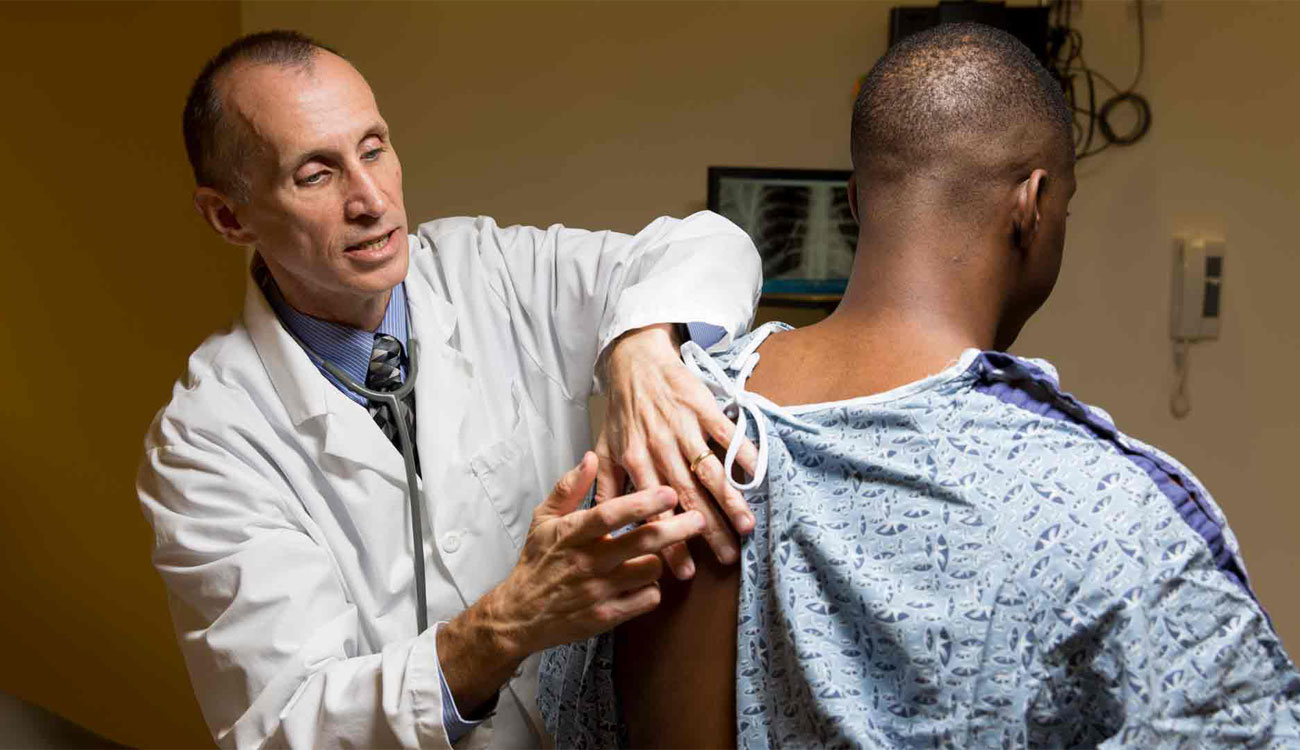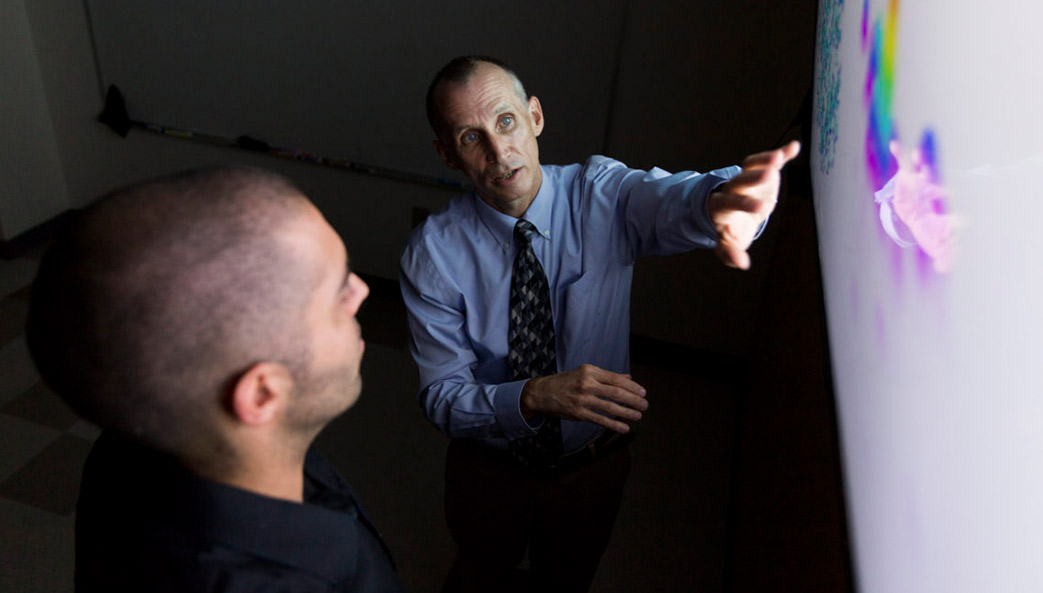Cellphones make a lot of things easier—keeping in touch with family, finding directions to the closest gas station, taking photos of everyday life.
But for the University of Georgia’s Christopher Whalen, cellphones may also hold the key to tracking how tuberculosis spreads through communities in Africa.
Tuberculosis is the ninth leading cause of death worldwide and the No. 1 deadliest infectious disease on the planet.
Despite the arrival of a vaccine in 1921, effective treatment options since 1952, and numerous disease prevention campaigns, tuberculosis remains uncontrolled in many parts of the world, especially in low- and middle-income countries.
Disease burden is a measurement that tries to quantify the impact of a health problem (cost, mortality, etc.). In sub-Saharan Africa, the burden of tuberculosis, or TB, is high and made worse because of the HIV epidemic. New cases of TB number in the millions each year throughout the African continent.
As a physician and an epidemiologist, Whalen has dedicated his career to preventing the spread of the TB.
“To make progress in curbing the epidemic of tuberculosis, new cases must be prevented,” said Whalen, the Holbrook Distinguished Professor in Global Health and director of the Global Health Institute at UGA’s College of Public Health.
The standard approach to tuberculosis control today relies on detection and treatment, but this approach doesn’t work in areas where the disease burden is high and new cases are numerous. As Whalen explained, “By the time a case is diagnosed and treated, the next generation of cases has already been newly infected.”
African countries accounted for almost one out of every four new cases of TB worldwide in 2017, according to the World Health Organization. The rate is even higher in urban settings, like Uganda’s capital city of Kampala.
For over 30 years, Whalen has been working with colleagues at Makerere University in Kampala to discover better ways of limiting TB’s spread.
Beginning in the 1990s, Whalen and a team of Ugandan scientists performed some of the first epidemiological studies on the effect of the HIV epidemic on its sister epidemic of TB in high-burden communities.
They formalized the standard public health practice of contact tracing— identifying and gathering information about any person who comes into contact with an infected patient—as a research tool to learn how TB spreads both inside a household and within social networks.
In 2018, he was awarded a grant from the National Institutes of Health to map the TB transmission in Kampala using a combination of patient lab samples and cellphone records.
“Everyone is carrying a cellphone,” said Whalen. “By using archived cell phone records, we can map where TB cases move and measure how much time (patients) spent in different places.”
The team will integrate this data with a genomic profile of the M. tuberculosis bacteria from patient lab samples. Through genomic testing, Whalen can trace one unique tuberculosis bacterium through communities, and the cellphone data provides a timeline for where and when new patients are infected.
“Our world today is an increasingly interrelated global community,” said Whalen. “The diseases that threaten one community, one place, do not respect geographical boundaries.”
Whalen’s work not only changes the game for TB prevention in Uganda but also protects communities across the globe.

About the Researcher
Christopher Whalen
Director, Global Health Institute
Ernest Corn Professor of Infectious Disease
UGA Distinguished Research Professor
Epidemiology
College of Public Health






